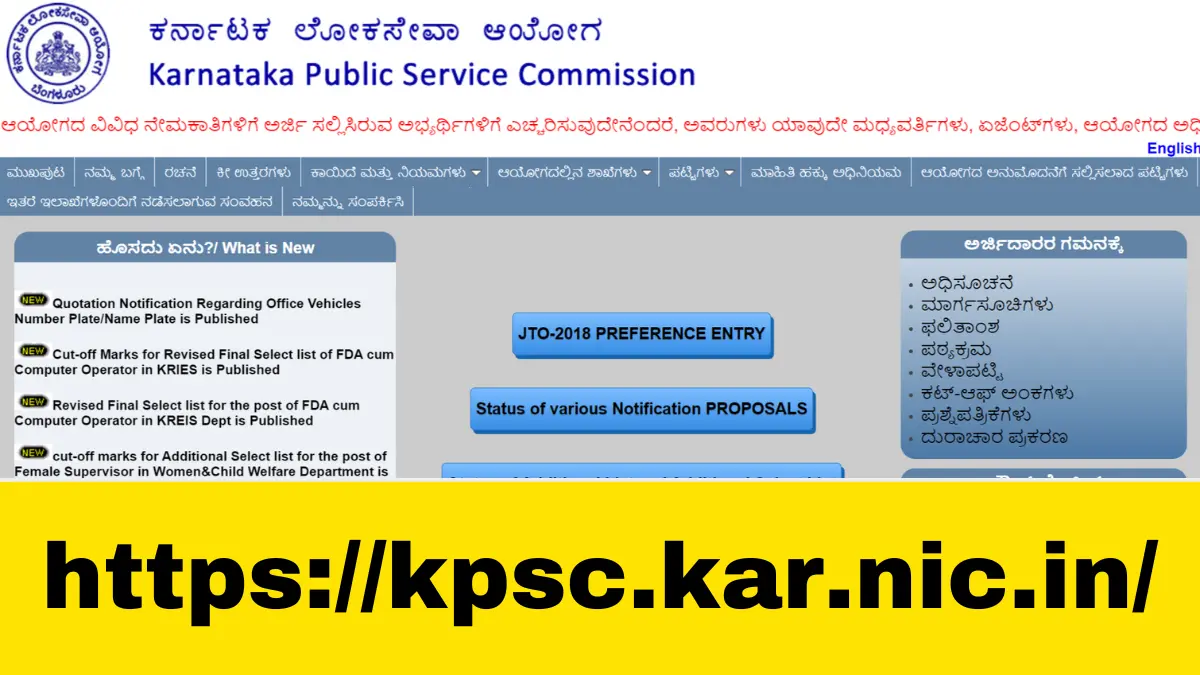KPSC PDO Hall Ticket 2024 releases soon on kpsc.kar.nic.in. Download using login credentials for essential exam details like venue, time, and instructions. Stay updated for exam date confirmation and prepare with KPSC’s exam pattern and study resources.

| Country | India |
|---|---|
| State | Karnataka |
| Exam Name | Panchayat Development Officer (PDO) |
| Conducting Body | Karnataka Public Service Commission (KPSC) |
| Hall Ticket Date | About a week before the exam |
| Exam Date | Expected in August or September 2024 |
| Official Website | kpsc.kar.nic.in |
As the Karnataka Public Service Commission (KPSC) prepares to release the hall ticket for the Panchayat Development Officer (PDO) examination, candidates are eagerly anticipating this pivotal document. Scheduled to be available approximately one week before the exam, the PDO hall ticket is essential for all applicants looking to secure positions within the Rural Development and Panchayat Raj Department.
Comprehensive Guide to KPSC PDO Hall Ticket 2024
1. Importance of the Hall Ticket
The KPSC PDO hall ticket is more than just an entry pass; it is a comprehensive document that contains vital information necessary for the examination day. Candidates must download and print their hall tickets from the official KPSC website, kpsc.kar.nic.in, using their login credentials. This ensures that they have all necessary details such as their name, roll number, examination venue, reporting time, and important instructions readily available.
2. Anticipated Exam Date
While the exact date for the PDO examination in August or September 2024 has yet to be officially confirmed by KPSC, candidates should regularly check the official website for updates. Knowing the exam date in advance allows candidates to plan their study schedules and logistical arrangements accordingly, ensuring they arrive fully prepared on the day of the exam.
3. Detailed Information on the Hall Ticket
The PDO hall ticket provides a wealth of information crucial for candidates:
| Details Included on Hall Ticket | Description |
|---|---|
| Candidate’s Name | Name of the candidate as per application |
| Candidate’s Roll Number | Unique identification number assigned to each candidate |
| Examination Time | Scheduled time for the commencement of the examination |
| Reporting Time | Time by which candidates must report to the examination venue |
| Examination Venue/Center Address | Location where the examination will take place |
| Exam Center Code | Unique code identifying the examination center |
| Instructions for Candidates | Important guidelines and rules to be followed during the examination |
| Gender | Gender of the candidate |
| Category | Category under which the candidate has applied (e.g., General, OBC, SC, ST) |
| Registration/Application Number | Unique number assigned during the application process |
| Date of Birth | Candidate’s date of birth |
| Photograph of the Candidate | Visual identification of the candidate |
| Signature of the Candidate | Verification of the candidate’s identity through signature |
| Examination Date | Date when the PDO examination will be conducted |
4. Understanding the Exam Pattern
To excel in the PDO examination, candidates must familiarize themselves with its structure:
| Exam Pattern Overview | Details |
|---|---|
| Mode | Online |
| Duration | Paper I: 1.5 hours, Paper II: 2 hours |
| Total Questions | Paper I: 100 questions, Paper II: 100 questions (divided into sections) |
| Maximum Marks | Paper I: 100 marks, Paper II: 100 marks |
| Question Type | Multiple Choice Questions (MCQs) |
| Marking Scheme | Correct Answer: +1 mark, Incorrect Answer: -0.25 marks (negative marking) |
| Sections | Paper I: General Knowledge (100 questions), Paper II: General Kannada, General English, Computer Knowledge |
| Medium | Paper I: Bilingual (English and Kannada), Paper II: Kannada (General Kannada), English (General English), Bilingual (Computer Knowledge) |
| Kannada Language Test (Qualifying in Nature) | Marks: 150, Qualifying Marks: 50, Standard: 12th/SSLC Level |
5. Preparation Strategies
Effective preparation is key to success in the PDO examination:
- Study Resources: Utilize KPSC’s recommended study materials, including previous years’ question papers and mock tests, to gauge the exam’s difficulty level and practice time management.
- Time Management: Allocate sufficient time for each section of the exam, focusing on areas of strength while addressing weaker subjects through targeted revision.
- Revision Techniques: Employ revision strategies such as mind maps, flashcards, and group study sessions to reinforce learning and boost retention of key concepts.
| Home Page | https://esichennai.org/ |

With a career spanning more than 10 years, Arun’s reporting credentials boast credits from Click News and News TV, among other esteemed news organizations. Presently affiliated with esichennai.org, Arun is celebrated for his adeptness in crafting detailed, precise, and captivating academic news pieces. He crafts writing that’s remarkably clear and concise, stripping away the jargon to make complex ideas kid-friendly – think fifth-grade level. With a steadfast focus on quality and integrity, Arun’s writing consistently ranks among the best on Google News.